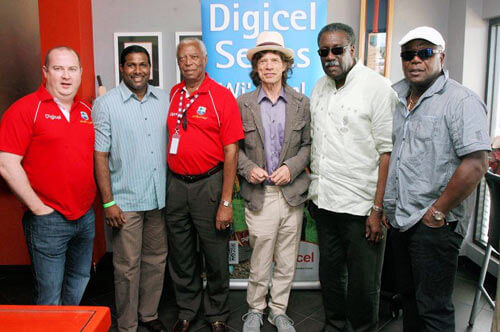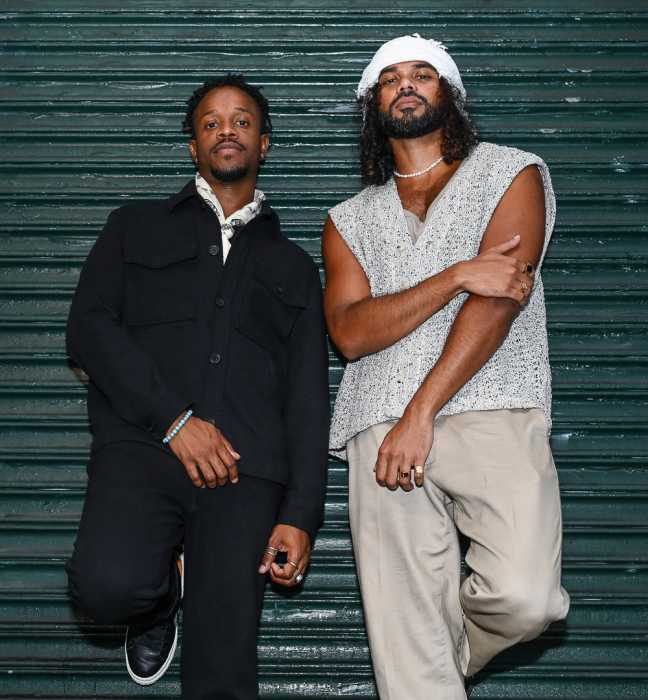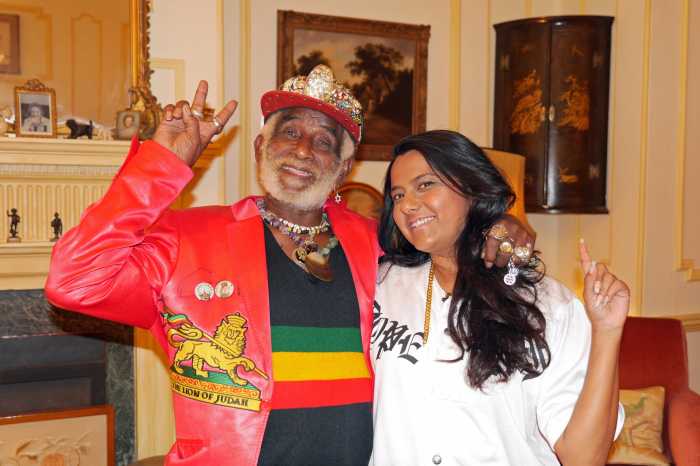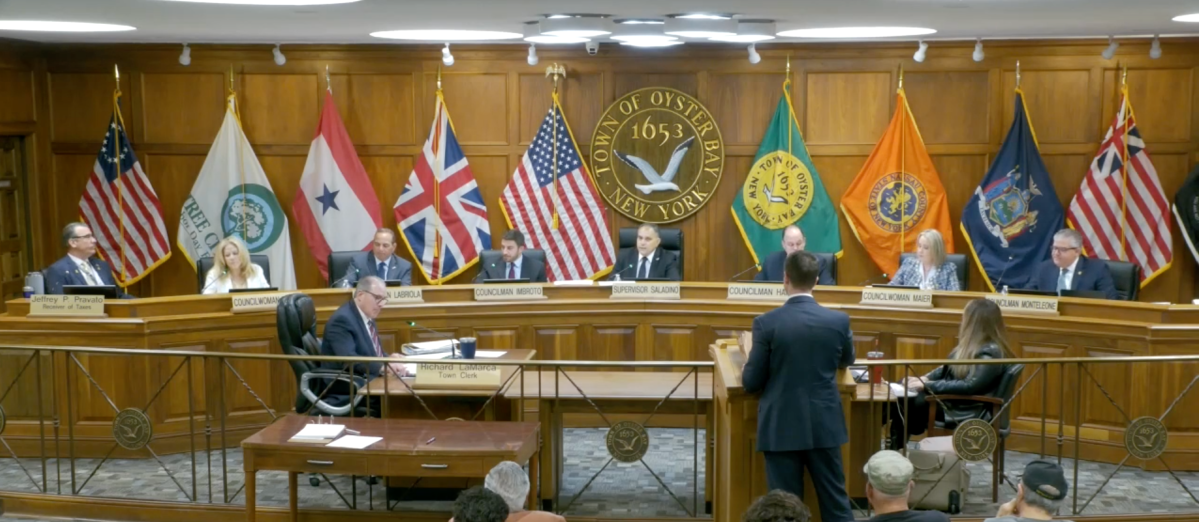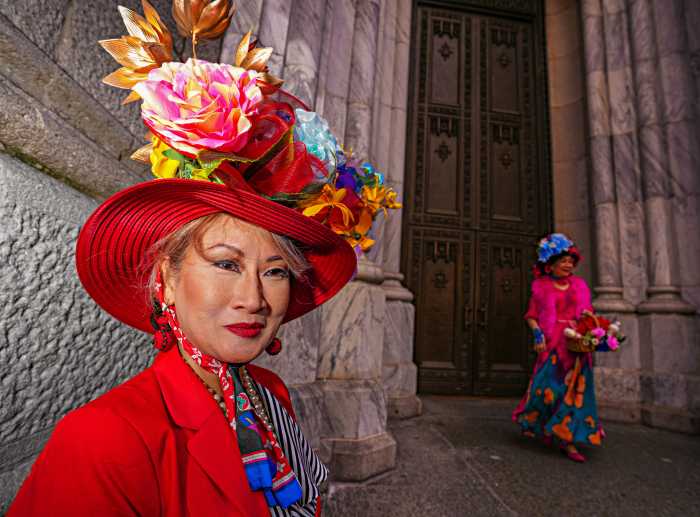It would have been nice to report that Mick Jagger batted a thousand runs or that the front man for Britain’s most popular music group rocked the twin island of Trinidad & Tobago when he visited recently.
Fact is, the Rollingstones’ lead singer yielded to athletes competing in the West Indies vs. Australia Digicel 2012 Series by taking a front seat at Queens Park Oval in the capital city where a one-day cricket match highlighted the Caribbean schedule.
The rock legend joined Niall Dorrian, Digicel CEO and fans of the sport to watch the game on the first day of the Test match in Port-of-Spain.
The first leg of the series kicked off last month in St. Vincent before going to St. Lucia, Barbados, Trinidad and Dominica.
The second half of the series pits the West Indies against New Zealand.
The tentative dates for the New Zealand tour begin July 1 through to Aug. 2.
Visit cwc.digicelcricket.com/matches
African Film Fest Spotlights Barack’s Sister
‘Auma Obama’ & ‘Mama Africa’
The African Film Festival continues to project enlightening and compelling images from the continent until May 28.
Presenting films from South Africa, Senegal, Tanzania, Nigeria, The Congo, Morocco, Niger, Zimbabwe, Sudan, Algeria, Cameroon and Kenya, the festival has premiered numerous features and documentaries foreign to the Hollywood industry and alien to patrons who frequently visit cinemas. Among the offerings already screened — “Mama Africa,” a musical foray with Miriam Makeba, the singer acclaimed to be the nurturer from South Africa and mother who represented the entire continent.
A second highlight features “The Education of Auma Obama.”
Making its New York debut, the 79-minute documentary spotlights the older, half sister of President Barack Obama for an up-close and personal expose she fully participated in presenting. The thrust of the film focuses on the Kenyan homesteader following her to Germany where she studied and lived for 16 years before moving and marrying in England.
However, the film also devotes time to establish her family, which comprises many aunts, cousins, nieces, a father and her world-famous half brother.
Auma met her brother for the first time in the 1980’s when he was an activist in Chicago. They had been corresponding through the mail and she expressed a desire to meet. He accepted her initiative and invited her for a visit.
It was after that first encounter that Auma decided she would mount her own overseas campaign to help elect her younger brother to serve in the Illinois senate.
Americans will be surprised to see the celebrations which ensued after the son of a Kenyan spoke at the 2004 Democratic Convention and even more jubilant Nov. 2008 when he was elected the first Black president of the United States.
The star spangled banner seemed to be raised highest throughout Nairobi and cardboard images of Barack Obama gave presence during ceremonial rituals and campaign watch sessions monitored on television.
And while the focus is Auma, her dedication to her family and the country she seems to incorporate any relative that impact her active lifestyle.
Auma exhibits strength, ambition and perseverance despite gender inhibitors.
Auma defied her father’s dominance to pursue education.
Similarly, Makeba defied her nation by speaking out against its atrocities to explain apartheid to delegates at the United Nations. Reportedly, she was the first to do so.
Mostly regarded as a singer who recorded “Pata Pata” and the “Click Song,” Makeba was also acclaimed for fashioning African garb, exotic performances and banding with Harry Belafonte to promote cultural diversity and appreciation of African music.
Fans of Makeba are convinced she was persecuted for marrying Black Panther Party advocate Stokely Carmichael AKA Kwame Toure.
Soon after the union, numerous concert tours and engagements were canceled, visas revoked and many television programs refused her access.
Makeba married the Trinidad and Tobago native after divorcing South African musician/trumpeter Hugh Masekela.
Eventually, the couple moved to Guinea where President Sekou Toure invited them to build a home.
The 90-minute film compiles footage from various nations.
Wonderful performances, interviews and vintage newsreels accredit “Mama Africa” as one of the most significant films of the festival.
While there is a preponderance of delightful films presented, with “The Education of Auma Obama” and “Mama Africa” the festival scores in distinctly distinguishing the superlative roles African women should be acclaimed.
For more information log onto www.africanfilmny.org
Catch You On The Inside!


